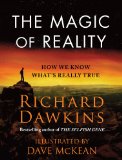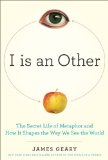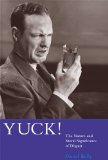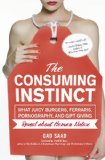Three titles to look forward to in October:

The Better Angels of Our Nature: Why Violence Has Declined by Steven Pinker (Viking Adult, October 4, 2011)
(kindle ed.), (amazon.co.uk – 6 Oct 2011)
Product description from the publisher:
The author of The New York Times bestseller The Stuff of Thought offers a controversial history of violence.
Faced with the ceaseless stream of news about war, crime, and terrorism, one could easily think we live in the most violent age ever seen. Yet as New York Times bestselling author Steven Pinker shows in this startling and engaging new work, just the opposite is true: violence has been diminishing for millennia and we may be living in the most peaceful time in our species’s existence. For most of history, war, slavery, infanticide, child abuse, assassinations, pogroms, gruesome punishments, deadly quarrels, and genocide were ordinary features of life. But today, Pinker shows (with the help of more than a hundred graphs and maps) all these forms of violence have dwindled and are widely condemned. How has this happened?
This groundbreaking book continues Pinker’s exploration of the essence of human nature, mixing psychology and history to provide a remarkable picture of an increasingly nonviolent world. The key, he explains, is to understand our intrinsic motives- the inner demons that incline us toward violence and the better angels that steer us away-and how changing circumstances have allowed our better angels to prevail. Exploding fatalist myths about humankind’s inherent violence and the curse of modernity, this ambitious and provocative book is sure to be hotly debated in living rooms and the Pentagon alike, and will challenge and change the way we think about our society.

The Magic of Reality: How We Know What’s Really True by Richard Dawkins, illustrated by Dave McKean (Free Press, October 4, 2011)
(kindle ed.), (amazon.co.uk – 15 Sep 2011)
Product description from the publisher:
Richard Dawkins’s The Selfish Gene revolutionized the way we see natural selection. His blockbuster The God Delusion provoked worldwide debate. Now this master science writer has teamed up with David McKean, a master of the graphic novel, to create a new genre: the graphic science book.
The Magic of Reality
Science is our most precise and powerful tool for making sense of the world. Before we developed the scientific method, we created rich mythologies to explain the unknown. The pressing questions that primitive men and women asked are the same ones we ask as children. Who was the first person? What is the sun? The myths that address these questions are beautiful, but in every case their beauty is exceeded by the scientific truth.
With characteristic clarity and verve, Dawkins uses each chapter to answer one of these big questions. Looking first at some of the myths that arose to answer the question, he then, with the help of McKean’s marvelous full-color illustrations, dazzles us with the facts. He looks at the building blocks of matter, the first humans, the sun—explaining the life and death of stars; why there’s a night and a day—ranging from our solar system to the inner workings of our planet; what a rainbow really is—going from the rainbow in your backyard to the age of the universe; and finally, he poses a question that still baffles scientists: When did everything begin? This is a frame-by-frame look at the infinite beauty behind everyday phenomenon.

Thinking, Fast and Slow by Daniel Kahneman (Farrar, Straus and Giroux, October 25, 2011)
(amazon.co.uk – 3 Nov 2011)
Product description from the publisher:
Daniel Kahneman, recipient of the Nobel Prize in Economic Sciences for his seminal work in psychology that challenged the rational model of judgment and decision making, is one of our most important thinkers. His ideas have had a profound and widely regarded impact on many disciplines – including economics, business, law and philosophy – and have been hugely influential on Daniel Ariely, Richard Thaler, Steven Pinker, Jonah Lehrer, and Daniel Gilbert, among many other well-known writers. But, until now, he has never brought together his many years of research and thinking in one book.
In the highly anticipated Thinking, Fast and Slow, Kahneman introduces the “machinery of the mind.” Two systems drive the way we think and make choices: System One is fast, intuitive, and emotional; System Two is slower, more deliberative, and more logical. Examining how both systems function within the mind, Kahneman exposes the extraordinary capabilities and also the faults and biases of fast thinking, and the pervasive influence of intuitive impressions on our thoughts and our choices. The role of optimism in opening up a new business and the importance of luck in a successful corporate strategy, the difficulties of predicting what will make us happy in the future and the psychological pitfalls of playing the stock market – each of these can only be understood by knowing how the two systems work together to shape our judgments and decision making.
Engaging the reader in a lively conversation about how we think, Kahneman shows where we can trust our intuitions and how we can tap into the benefits of slow thinking. He offers practical and enlightening insights into how choice are made in both our business and personal lives – and how we can guard against the mental glitches that often get us into trouble. Kahneman will change the way you think about thinking.









